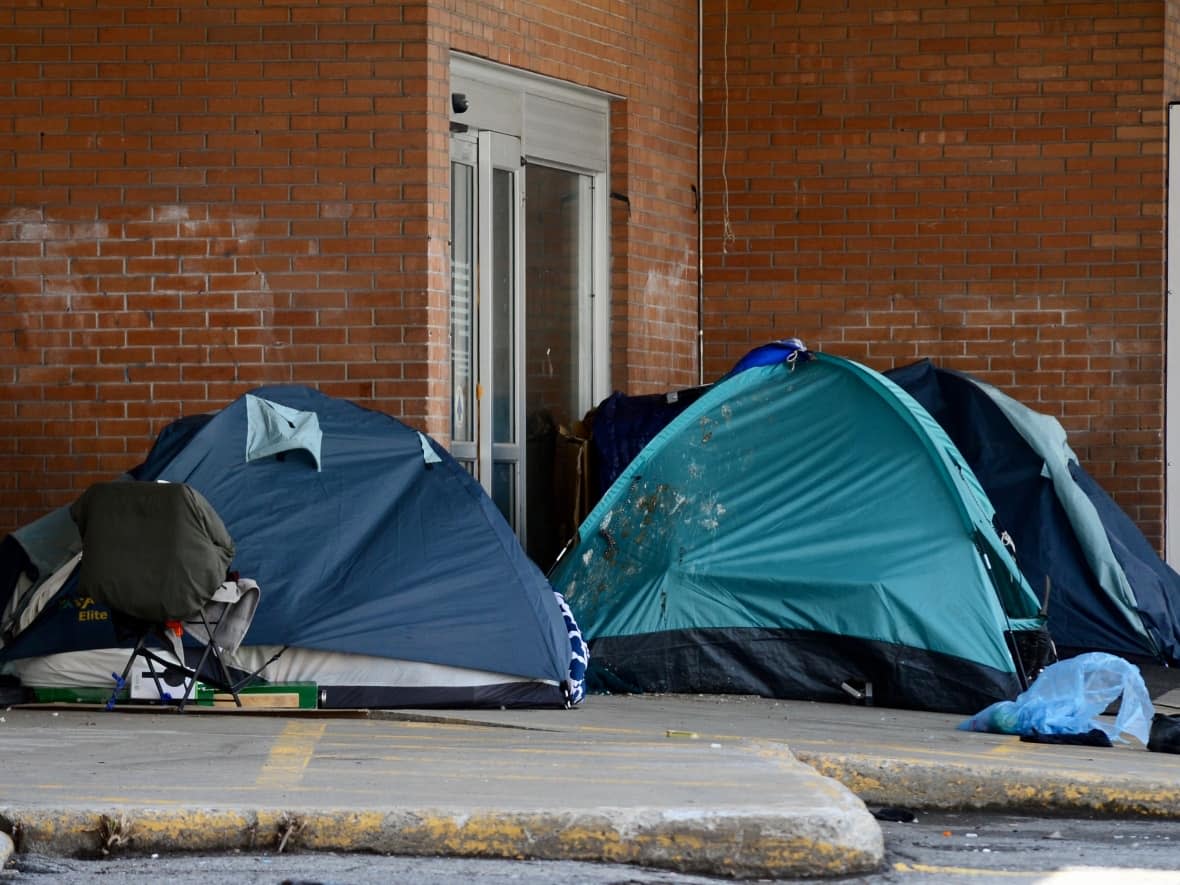Montreal continues efforts to aid homeless this winter with emergency beds, warming stations

Montreal will provide 1,550 emergency beds to people experiencing homelessness this winter.
The beds are one of several initiatives that will be provided in partnership with community organizations and a local health agency, the CIUSSS du Center-Sud-de-l'Île-de-Montréal, from Nov. 1 to March 31.
These services for the city's homeless will gradually be increased as the cold weather moves in. For example, there will be 10 new warming stations located across Montreal in places like downtown, Plateau—Mont-Royal and Pointe-Saint-Charles.
There will be an around-the-clock service for Indigenous people suffering from homelessness and resources provided specifically to women, the health agency announced Tuesday.
The city is also launching a program that will provide up to 200 people access to housing, Montreal public health says.
These measures are a continuation of efforts that were launched and developed during the pandemic after Montreal Mayor Valérie Plante declared a state of emergency on March 27, 2020, specifically to help the homeless population.
For example, a shuttle service will continue this winter, transporting people to shelters with vacancies if the one they went to is full. The shuttle will also provide rides to warming stations.
Intervention teams will be out on the streets, directing people experiencing homelessness to various resources.
Last winter, when the number of new COVID-19 cases in Quebec was topping 1,000 on an almost daily basis, the city provided 100 more emergency beds.
Homeless encampments, like the along Notre-Dame Street just east of the Jacques Cartier Bridge, were dismantled and people were directed to shelters.
At the end of January, Raphaël Napa André, a homeless man from the Innu community of Matimekush-Lac John, was found frozen to death in a chemical toilet in front of a shelter that had been forced to close its doors at night following a COVID-19 outbreak.
In February, a warming tent was erected in his honour in Cabot Square and was open during curfew hours.
Last week, the Quebec government announced it is investing $280 million over the next five years in sheltering homeless people immediately, and in a long-term effort to prevent homelessness among at-risk populations.
The plan is called S'allier devant l'itinerance, which roughly translates to "united against homelessness" and the funding is to be spread out across the province.
The plan includes $77 million for those who are currently — or at risk of becoming — homeless, and another $14 million toward reducing homelessness among Indigenous people. And $10 million is earmarked for homeless women.
However, advocates for the homeless, like Nakuset, say it's still not enough. She heads Resilience Montreal, a day centre near the city's Cabot Square.
While a boost in funding is always appreciated, she said, "once you break it down by five years you're like 'that's it? That's it?' And how many shelters are there and how many more need to be created?'"

 Yahoo Movies
Yahoo Movies 
